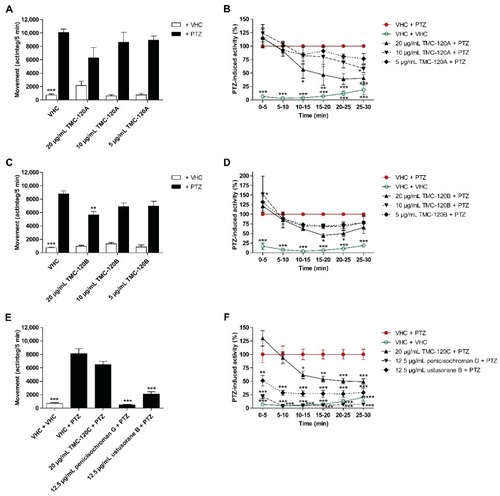Figure 6
- ID
- ZDB-FIG-191230-1749
- Publication
- Copmans et al., 2019 - Zebrafish-Based Discovery of Antiseizure Compounds from the North Sea: Isoquinoline Alkaloids TMC-120A and TMC-120B
- Other Figures
- All Figure Page
- Back to All Figure Page
|
Behavioral antiseizure analysis of TMC-120A, TMC-120B, and structural analogues in the zebrafish PTZ seizure model. Antiseizure activity of TMC-120A ( |

